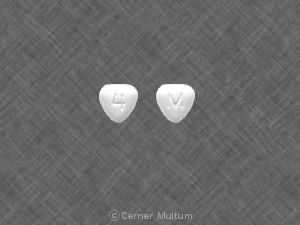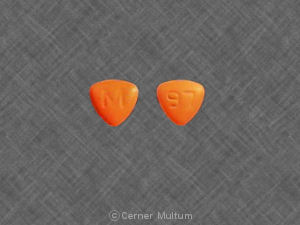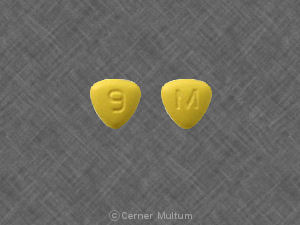What is the most important information I should know about fluphenazine?
You should not use fluphenazine if you have liver disease, brain damage, bone marrow depression, a blood cell disorder, or if you are also using large amounts of alcohol or medicines that make you sleepy.
Fluphenazine is not approved for use in psychotic conditions related to dementia. Fluphenazine may increase the risk of death in older adults with dementia-related conditions.
What is fluphenazine?
Fluphenazine is an anti-psychotic medicine in a group of drugs called phenothiazines (FEEN-oh-THYE-a-zeens). It works by changing the actions of chemicals in your brain.
Fluphenazine is used to treat psychotic disorders such as schizophrenia.
Fluphenazine may also be used for purposes not listed in this medication guide.
What should I discuss with my healthcare provider before taking fluphenazine?
You should not use this medicine if you are allergic to fluphenazine or other phenothiazines (chlorpromazine, perphenazine, prochlorperazine, promethazine, thioridazine, trifluoperazine), or if you have:
- liver disease;
- brain damage;
- a blood cell disorder (such as low platelets or low red or white blood cell counts);
- if you drink large amounts of alcohol; or
- if you also take medicines that make you sleepy.
Fluphenazine is not approved for use in psychotic conditions related to dementia. Fluphenazine may increase the risk of death in older adults with dementia-related conditions.
To make sure fluphenazine is safe for you, tell your doctor if you have:
- heart disease or high blood pressure;
- bone marrow suppression;
- a brain tumor;
- liver or kidney disease;
- severe asthma, emphysema, or other breathing problem;
- a history of breast cancer;
- glaucoma;
- seizures or epilepsy;
- pheochromocytoma (tumor of the adrenal gland);
- an enlarged prostate or urination problems;
- Parkinson's disease; or
- if you have ever had a serious side effect while using fluphenazine or any other phenothiazine.
Tell your doctor if you will be exposed to extreme heat or cold, or to insecticide poisons while you are taking fluphenazine.
It is not known whether fluphenazine will harm an unborn baby. Tell your doctor if you are pregnant or plan to become pregnant while using this medicine.
Taking antipsychotic medication during the last 3 months of pregnancy may cause problems in the newborn, such as withdrawal symptoms, breathing problems, feeding problems, fussiness, tremors, and limp or stiff muscles. However, you may have withdrawal symptoms or other problems if you stop taking your medicine during pregnancy. If you become pregnant while taking fluphenazine, do not stop taking it without your doctor's advice.
It is not known whether fluphenazine passes into breast milk or if it could harm a nursing baby. Tell your doctor if you are breast-feeding a baby.
How should I take fluphenazine?
Follow all directions on your prescription label. Your doctor may occasionally change your dose to make sure you get the best results. Do not take this medicine in larger or smaller amounts or for longer than recommended.
Measure liquid medicine with the dosing syringe provided, or with a special dose-measuring spoon or medicine cup. If you do not have a dose-measuring device, ask your pharmacist for one.
Fluphenazine oral solution concentrate solution must be mixed with at least 2 ounces (1/4 cup) of a liquid such as milk, tomato juice, fruit juice (but not apple juice), or a soft drink that does not contain caffeine.
While using fluphenazine, you may need frequent medical tests to check your kidney and liver function.
If you need surgery, tell the surgeon ahead of time that you are using fluphenazine. You may need to stop using the medicine for a short time.
Do not stop using fluphenazine suddenly after long-term use, or you could have unpleasant withdrawal symptoms. Ask your doctor how to avoid withdrawal symptoms when you stop using fluphenazine.
Store at room temperature away from moisture, heat, and light. Do not allow liquid medicine to freeze.
What happens if I miss a dose?
Take the missed dose as soon as you remember. Skip the missed dose if it is almost time for your next scheduled dose. Do not take extra medicine to make up the missed dose.
What happens if I overdose?
Seek emergency medical attention or call the Poison Help line at 1-800-222-1222.
What should I avoid while taking fluphenazine?
This medicine may impair your thinking or reactions. Be careful if you drive or do anything that requires you to be alert.
Drinking alcohol can increase certain side effects of fluphenazine.
Avoid exposure to sunlight or tanning beds. Fluphenazine can make you sunburn more easily. Wear protective clothing and use sunscreen (SPF 30 or higher) when you are outdoors.
What are the possible side effects of fluphenazine?
Get emergency medical help if you have signs of an allergic reaction: hives; difficult breathing; swelling of your face, lips, tongue, or throat.
High doses or long-term use of fluphenazine can cause a serious movement disorder that may not be reversible. Symptoms of this disorder include uncontrollable muscle movements of your lips, tongue, eyes, face, arms, or legs. The longer you take fluphenazine, the more likely you are to develop a serious movement disorder. The risk of this side effect is higher in women and older adults.
Call your doctor at once if you have:
- twitching or uncontrollable movements of your eyes, lips, tongue, face, arms, or legs;
- stiffness in your neck, tightness in your throat, trouble breathing or swallowing;
- sudden weakness or ill feeling, fever, chills, sore throat, swollen gums, painful mouth sores, pain when swallowing, skin sores, cold or flu symptoms, cough, easy bruising or bleeding;
- a light-headed feeling (like you might pass out), slow heart rate, weak pulse, fainting, slow breathing;
- seizure (convulsions);
- blurred vision, eye pain, seeing halos around lights;
- dark urine, clay-colored stools, jaundice (yellowing of the skin or eyes);
-
severe nervous system reaction --very stiff (rigid) muscles, high fever, sweating, confusion, fast or uneven heartbeats, tremors, feeling like you might pass out; or
-
severe skin reaction --fever, sore throat, swelling in your face or tongue, burning in your eyes, skin pain, followed by a red or purple skin rash that spreads (especially in the face or upper body) and causes blistering and peeling.
Older adults may be more likely to have side effects from this medicine.
Common side effects may include:
- tremors, restless feeling, uncontrolled muscle movements;
- stiffness in the muscles of your neck or back;
- speech problems; or
- overactive reflexes.
This is not a complete list of side effects and others may occur. Call your doctor for medical advice about side effects. You may report side effects to FDA at 1-800-FDA-1088.
What other drugs will affect fluphenazine?
Taking fluphenazine with other drugs that make you sleepy or slow your breathing can cause dangerous or life-threatening side effects. Ask your doctor before taking a sleeping pill, narcotic pain medicine, prescription cough medicine, a muscle relaxer, or medicine for anxiety, depression, or seizures.
Other drugs may interact with fluphenazine, including prescription and over-the-counter medicines, vitamins, and herbal products. Tell each of your health care providers about all medicines you use now and any medicine you start or stop using.
Where can I get more information?
Your pharmacist can provide more information about fluphenazine.
Remember, keep this and all other medicines out of the reach of children, never share your medicines with others, and use this medication only for the indication prescribed.
Every effort has been made to ensure that the information provided by Cerner Multum, Inc. ('Multum') is accurate, up-to-date, and complete, but no guarantee is made to that effect. Drug information contained herein may be time sensitive. Multum information has been compiled for use by healthcare practitioners and consumers in the United States and therefore Multum does not warrant that uses outside of the United States are appropriate, unless specifically indicated otherwise. Multum's drug information does not endorse drugs, diagnose patients or recommend therapy. Multum's drug information is an informational resource designed to assist licensed healthcare practitioners in caring for their patients and/or to serve consumers viewing this service as a supplement to, and not a substitute for, the expertise, skill, knowledge and judgment of healthcare practitioners. The absence of a warning for a given drug or drug combination in no way should be construed to indicate that the drug or drug combination is safe, effective or appropriate for any given patient. Multum does not assume any responsibility for any aspect of healthcare administered with the aid of information Multum provides. The information contained herein is not intended to cover all possible uses, directions, precautions, warnings, drug interactions, allergic reactions, or adverse effects. If you have questions about the drugs you are taking, check with your doctor, nurse or pharmacist.
Copyright 1996-2018 Cerner Multum, Inc. Version: 8.03. Revision date: 9/26/2016.



